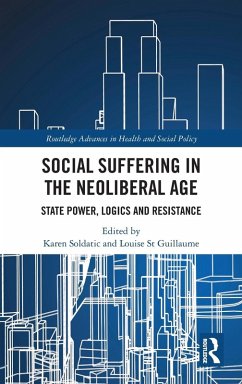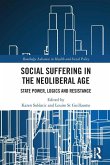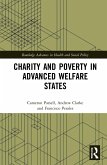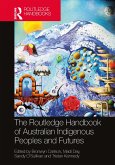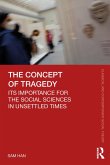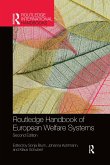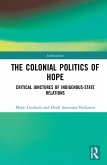This book provides a rich synthesis of research and theory of nascent and emergent critically engaged work examining changing welfare structures, regimes and technologies and the social suffering that is generated in everyday lives.
By rigorously examining social security restructuring with the turn to austerity governance and its daily practices of managing, regulating and subordinating individuals, peoples and communities, this collection delineates the machinery of state power and logics designed to manage, contain and control the lives of some of the most poorest and marginalised citizens who are reliant on social welfare income payments. A core strength of the book is, first, its unpacking of austerity governance across diverse communities and, second, the elevation of community resistance and mobilisation against the very measures of austerity. Combined, the work maps out the logics of state power and everyday practices of embedded contestation and confrontation.
Using the case study of Australia to discuss sociolegal recategorisations, automation of welfare governance, technologies of policy design and delivery, conditionality and systems of penalisation, this book will be of interest to all scholars and students of sociology, critical theory, social policy, social work and disability studies, Indigenous studies and settler-colonialism.
By rigorously examining social security restructuring with the turn to austerity governance and its daily practices of managing, regulating and subordinating individuals, peoples and communities, this collection delineates the machinery of state power and logics designed to manage, contain and control the lives of some of the most poorest and marginalised citizens who are reliant on social welfare income payments. A core strength of the book is, first, its unpacking of austerity governance across diverse communities and, second, the elevation of community resistance and mobilisation against the very measures of austerity. Combined, the work maps out the logics of state power and everyday practices of embedded contestation and confrontation.
Using the case study of Australia to discuss sociolegal recategorisations, automation of welfare governance, technologies of policy design and delivery, conditionality and systems of penalisation, this book will be of interest to all scholars and students of sociology, critical theory, social policy, social work and disability studies, Indigenous studies and settler-colonialism.
Social Suffering in the Neoliberal Age: State Power, Logics and Resistance is a collection of important works that document the ongoing suffering produced by the Australian social security system in the name of welfare. The works also expand our understandings to foster new ways of thinking, rethinking and approaching social security futures - including centring practices of resistance and refusal. A must read for anyone wanting to understand contemporary social security, particularly in a settler colonial context, and the cracks to which efforts could be focused for change.
Dr Elise Klein, Senior Lecturer Policy and Governance HDR Convenor, Crawford School of Public Policy, College of Asia and the Pacific
Social Suffering in the Neoliberal Age: State Power, Logics and Resistance provides a powerful and diverse account of how the protective features of Australia's social security system have been weakened over time and incrementally replaced with technical systems of governance and classification that establish, maintain and intensify social and racial hierarchies. The collection strikes a stimulating balance between the necessary, yet troubling, work of identifying how power is wielded through the social security system and providing illustrative pathways of hope, opportunity and resistance.
Professor Kay Cook, Associate Dean Research, School of Social Sciences, Media, Film and Education, Swinburne University of Technology
A timely and extremely important book that puts social protection, governance and assumptions about these under a much needed critical spotlight to expose the inordinate suffering caused under the neoliberal regime, with a view to finding effective, human sites of resistance. These are theoretical and practical concerns that will echo well beyond the Australian context.
Dr Shaun Grech, The Critical Institute, Malta
Focusing on the specific context of the Australian social security system, Social Suffering in the Neoliberal Age: State Power, Logics and Resistance critically examines the ever-growing structures of social inequalities in neoliberal capitalism. By drawing attention on intersectional forms of disparities and discrimination including, but certainly not limited to, structural violence, economic deprivation and colonial continuities as well as mechanisms of stigmatisation and exclusion of marginalized groups from participation in economic, social, cultural and political processes within the Australian welfare state, this collection of critical chapters also provides practices of resistance and hope in the postcolonial moment that.
Dr Robel Afeworki Abay, Humboldt University of Berlin
Soldatic, St. Guillaume, and their collaborators have curated a set of book chapters that powerfully challenge oppressive neoliberal social protection policies in Australia. The authors do so by powerfully centering the perspectives and lived experiences of the historically marginalised people these damaging policies are purported to protect. The personal narratives and alternative approaches presented in this book are a must-read for anyone interested in social reform and the redistribution of power to those who have been traumatised from inhumane governmental policies.
Dr Brent C. Elder, Assistant Professor, Rowan University
Dr Elise Klein, Senior Lecturer Policy and Governance HDR Convenor, Crawford School of Public Policy, College of Asia and the Pacific
Social Suffering in the Neoliberal Age: State Power, Logics and Resistance provides a powerful and diverse account of how the protective features of Australia's social security system have been weakened over time and incrementally replaced with technical systems of governance and classification that establish, maintain and intensify social and racial hierarchies. The collection strikes a stimulating balance between the necessary, yet troubling, work of identifying how power is wielded through the social security system and providing illustrative pathways of hope, opportunity and resistance.
Professor Kay Cook, Associate Dean Research, School of Social Sciences, Media, Film and Education, Swinburne University of Technology
A timely and extremely important book that puts social protection, governance and assumptions about these under a much needed critical spotlight to expose the inordinate suffering caused under the neoliberal regime, with a view to finding effective, human sites of resistance. These are theoretical and practical concerns that will echo well beyond the Australian context.
Dr Shaun Grech, The Critical Institute, Malta
Focusing on the specific context of the Australian social security system, Social Suffering in the Neoliberal Age: State Power, Logics and Resistance critically examines the ever-growing structures of social inequalities in neoliberal capitalism. By drawing attention on intersectional forms of disparities and discrimination including, but certainly not limited to, structural violence, economic deprivation and colonial continuities as well as mechanisms of stigmatisation and exclusion of marginalized groups from participation in economic, social, cultural and political processes within the Australian welfare state, this collection of critical chapters also provides practices of resistance and hope in the postcolonial moment that.
Dr Robel Afeworki Abay, Humboldt University of Berlin
Soldatic, St. Guillaume, and their collaborators have curated a set of book chapters that powerfully challenge oppressive neoliberal social protection policies in Australia. The authors do so by powerfully centering the perspectives and lived experiences of the historically marginalised people these damaging policies are purported to protect. The personal narratives and alternative approaches presented in this book are a must-read for anyone interested in social reform and the redistribution of power to those who have been traumatised from inhumane governmental policies.
Dr Brent C. Elder, Assistant Professor, Rowan University

